- Beck: The Cosmic Closer
- All American Rejects: The Emo Revival
- Extra Innings Festival Announces Lineup: Tempe AZ, Feb. 28 and March 1, 2025
- Ella Langley is Fabulous at Two Step Inn: Review and Photos
- Rob Zombie’s Freaks on Parade Tour: Review and Photos
- Vlad Holiday, with photos: The Eclectic Sound of Modern Melancholy
Interview with Americana Artist Tokyo Rosenthal
“I’ve had an amazing amount of luck even to be able to do this for the past eight years that I’ve been doing it. While the Grammy thing would be incredible, it’s not the end of the world.”
Tokyo Rosenthal is one of thousands of artists, writers, engineers and musicians who have been accepted into the first round ballot of the 56th Grammy Awards. It’s a long hard road to a nomination, especially for an indie artist. His most recent release Tokyo’s Fifth, is competing in the Americana category. For a man who started in music only to take a decades long hiatus, his return to it has produced five albums to date, each one gaining more critical acclaim than the last, along with an ever-growing fan base.
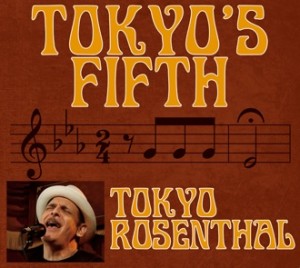 His songs reflect what he sees in the world around him. This album’s first single “What Did I Used To Be,” continued his focus on social and political issues. Tokyo’s Fifth was released in January 2013, and reached #16 on the FAR Americana charts in the U.S. and #4 on the Euro Americana Chart.
His songs reflect what he sees in the world around him. This album’s first single “What Did I Used To Be,” continued his focus on social and political issues. Tokyo’s Fifth was released in January 2013, and reached #16 on the FAR Americana charts in the U.S. and #4 on the Euro Americana Chart.
I recently had the chance to ask “Toke” about his multi-faceted career outside of music, the road back, the ever changing landscape of Americana music, and the story behind his killer version of The Beatles’ “Helter Skelter.”
Kath Galasso: I was listening to a couple of interviews you have on your website, and I had known you were from Chapel Hill, NC. But when I heard your voice, I said that’s not a Chapel Hill voice. Then I found out you’re from Long Island, NY. So how did that all happen?
Tokyo Rosenthal: I grew up in the first town over the NYC border, Valley Stream, and lived there until I went off to college. Lived in New England, playing music, Rhode Island primarily because I went to the University of Rhode Island. Played a lot of the Rhode Island-Boston circuit. Ultimately ended up living in LA, moved back east for a while in Connecticut, and for the last eight years I’ve been living in Chapel Hill.
And why Chapel Hill?
We became empty nesters and I was looking for a good music scene and a good airport. Also a good climate, I wanted heat but not Florida heat. I wanted a real convenient airport so that I could go almost anyplace but was pretty much a well-kept secret, which is what the Raleigh-Durham airport is. The music scene was important that there would be good players and pickers, and my wife wanted a college town, a Whole Foods and a Trader Joe’s. So she researched it, cause I could have lived any place… Texas, Austin, Vegas. We weren’t going back to LA because the earthquake freaked her out and pretty much freaked me out too. Anyway, we found Chapel Hill and it’s been nice, I really like it down here. The move here coincided with what I refer to, or one of the writers referred to as my “musical renaissance.” I basically had a music career, then a twenty year hiatus, then the next eight years when I got back into it again, have been the most successful eight years of my career.
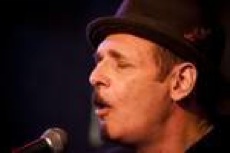 Now during that twenty year hiatus, you were involved in the boxing scene. Tell me about that.
Now during that twenty year hiatus, you were involved in the boxing scene. Tell me about that.
I had really two to three kinds of careers going on during that time. I was involved in cable television. I ran a couple of cable TV networks, most notably the Financial News Network which is CNBC today. We had a sports division and I got involved in the sports network, it was called Score. I had been a boxer when I was a kid and a boxing fan, and I gravitated a lot toward the boxing world when I was running the sports network. Ultimately after it was bought, I stayed on the boxing side as a TV commentator. I was a blow-by-blow commentator on TV and sometimes on radio too, and I managed fighters. So I was in the boxing world for a lot of years, and women’s boxing too. And the end of that kind of coincided with my getting back into music.
Was it a conscious decision, that you just wanted to go back into music?
I never stopped playing. I stopped writing, but I never stopped playing. I would even gig out now and then. But I always believed that I would get back to playing music, I just never dreamed that I would get to do it on a level that I’m doing it on now. Not that I’m playing stadiums or anything, and/or getting Grammy awards, but I am getting awards of some sort here and there, a lot of radio play and I’m touring. My idea of going back to playing music was I thought I’d be playing in the local bar on Thursday nights with a pickup band. That’s what I thought I’d be happy doing, then all this other stuff happened beginning with the song “Edmonton” up in Canada.
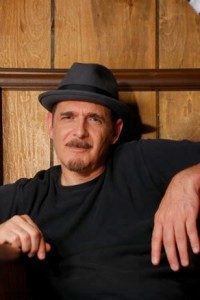 Was that the point where you started getting recognition?
Was that the point where you started getting recognition?
Well what happened was, more for therapeutic reasons I started writing and I wrote this song. I had been doing some boxing promoting up in Edmonton, and I was sitting in a hotel room one night thinking “Edmonton, you’re alone tonight” and one thing led to another and I wrote the song. And when I wrote it, I said it was a lot better than anything I had been writing twenty years earlier as a kid. It was better lyrically, better musically, so I thought well, maybe I’ve matured.
I wrote a couple of others and, I was a photographer for a while and a pretty much active photographer. And I always felt when I took a picture, if I liked it, I wanted to hang it on the wall. And that’s how I felt about music. Now I wrote these songs, so I have to record them. So I went and recorded them, and a very good friend of mine is a music publisher and I sent him the stuff I’d recorded. He calls me up and said “I got a copy of “Edmonton” today. Good song, not the second coming of ‘Gimme Shelter,’ but a good tune. But I’ve got better news for you. Nobody’s ever written a song with Edmonton in the title or in the lyrics before. I want to send it out to every radio station in Alberta. We’ll have a sticker on the outside that says “contains the new song ‘Edmonton’.” At least they’ll listen to it. What will happen after that, who knows, I can’t make them like it. Two weeks later I was on the radio, and I’d never been on the radio. Next thing I know, they sent me up there to visit the radio stations, play a couple of gigs, then the mayor of Edmonton gave me the key to the city. Then they put together a cross-country tour of Canada.
When this all started to happen, I dropped everything else. I said, this is what I wanted to do my whole life anyway. I’m old enough now to appreciate the little success I’m getting. I’m loving it. I guess I saved up enough to do this because being an Americana singer-songwriter and touring around, isn’t the kind of job you want to have when you’re putting two kids through college.
Yeah, I wouldn’t expect so. Actually any musician these days… it’s such a hard life.
It’s impossible. I don’t know how the younger guys do it with families. Just finding people to tour with me that don’t have day jobs is a full time thing. The process of finding someone new to go on the road for two weeks at a time, three weeks at a time, is incredibly difficult. How many people are in the position where they can go out and live on the money that I pay them, and support a family besides. It doesn’t happen, so you’ve got to find these people here and there, and when you have them, you hold onto them for dear life.
That’s so interesting, it’s something I wouldn’t have thought of. It’s not only you making your living, but also to keep a band together, and finding the guys who can actually take the time and do it.
That’s why when I got back into doing this, and I’ve played in my share of bands over my life, I knew I wasn’t going to put a band per se together. It was going to be called Tokyo Rosenthal because I knew I wouldn’t break up with me. And I knew from a touring point of view, over these past eight years, the most I’ve ever played with is a trio, but normally it’s a duo. Whoever’s playing with me knows my stuff inside out, and we get so good at playing it that we sound like four pieces, even though there’s just two of us playing. We come up with a different sound to the songs than you’ve heard on my records.
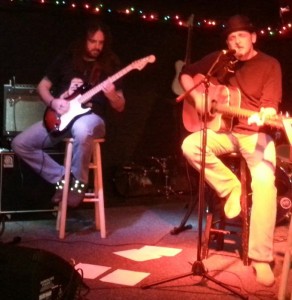 In your writing, I know you write a lot of things that you see: injustice, the environment, family. Do you normally start with lyrics?
In your writing, I know you write a lot of things that you see: injustice, the environment, family. Do you normally start with lyrics?
I would say it’s 85% lyrics. It’s rare that I start with a melody. It’s more the other 15-20% would be a riff on the guitar. Then I try to come up with songs to go along with it. Sometimes you wind up with the strangest… I might be sitting on a stool up in my music room and I come up with this pattern, and I look at some poster or magazine sitting there, I use that for the lyrics, just to get the melody going. There’s a lyric on “Who Is That Man,” and the bridge has a line “lost the ball in the sun.” People come up to me and say “that’s a really cool lyric,” and the reality was I as writing the song, I was also listening to a baseball game. And the announcer said “lost the ball in the sun,” and I said ok, I’ll put that in there for now. And I never replaced it, it was a good lyric and it kind of fit in with what I was talking about.
You’re in the Americana genre right now, and in one of the interviews you did you talk about how Americana is like a catch-all. Now everybody is starting to get into Americana, because it sounds so much cooler than Rock, because Rock has become like a four-letter word, and Folk is not to far away from that. It seems to get yourself heard, you’ve got a better chance if you call yourself Americana.
Well, my stock answer is Americana is everything from the Grateful Dead to Emmylou Harris, and everything in between. When I started in music what we call Americana today was folk-rock, then country-rock. Now it still is, with old-country thrown in, and classic rock, cause the classic rockers have no place else to go. Gregg Allman puts out a solo album and where’s he going to get airplay? So he winds up getting airplay and charting on the Americana stations.
It’s kind of become like the underground stations when FM was just starting.
Yes, so we’re all in the same boat. Bonnie Raitt winds up being an Americana artist, and she’s really not. You can stretch the definition all you want, but she’s a blues artist. But where’s she getting airplay… on the Americana stations. Levon Helm, if The Band was just starting today, they’d be in Americana. Elton John and Leon Russell, their album was on the Americana charts and didn’t get airplay anyplace else but the Americana stations. With the radio stations, there’s almost nothing in-between. You go from Top 40, Lady Gaga stations to Americana stations, which are mostly NPR affiliates and college stations.
What’s cool about the whole Americana thing is it’s not so hit oriented. You can hear different tracks of an album, which is how FM used to be.
They’re album oriented for sure. It’s funny, I see the playlists of what DJs throughout the world play off of my albums. Especially the European ones have a tendency to send you their playlists after they play you, they’re really proper like that. And I’ll see what song they’ve played off my record and it’s so diverse. There will be tracks that I’ll think would never get airplay. Then there are other ones that pick the songs I would expect them to play. But what you’re saying is 100% right.
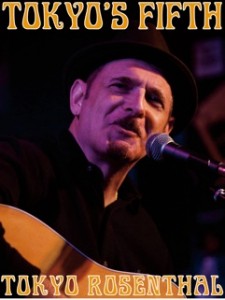 Now you’ve done a lot of touring in Europe, what’s the difference in the concert scene for you in Europe as opposed to the States?
Now you’ve done a lot of touring in Europe, what’s the difference in the concert scene for you in Europe as opposed to the States?
First of all, they’re huge Roots and Americana fans, and real historians of it too. You’re not going to sneak a cover in of a Burrito Brothers song without them knowing that it was a Burrito Brothers song, who played on the track, and which album it was. They really know they’re stuff over there. And the venues, it’s not that we don’t have what I call ‘listening rooms,” but listening rooms over here are few and far in-between. If you go out on tour, you’re not going to have a great gig seven nights a week. Over there, they’re much more receptive to sitting down and listening. And their radio stations are much more open to new artists and new material. It’s just not as competitive.
I want to talk to you about “Helter Skelter.” It’s fabulous. How did the arrangement come about, using the fiddle in there. I’ve got to know about it.
Two things influenced it. First, the Beatles put out in the 90s those three anthology albums. And on the third one there was the demo of Paul doing “Helter Skelter.” I’m riding in the car with my wife and we have that particular disc in. The way he did the demo was he opened it up the way I open it up with the verse as opposed to the chorus. And I’m listening to that, and it’s really just him and George playing some lead in the background of the demo. I listened to that and thought that’s a cool way to approach the song, open up with the verse. So I remember saying to my wife “Carrie, just write down Helter Skelter and give me that piece of paper when we get home cause I want to play around with that arrangement.” So I just thought of playing it the way it was done, he played it faster with the electric guitar behind, but I came up with my own version. So it all came from that, it influenced me to do it that way. The fiddle… on this album I was fortunate enough to have John Teer from Chatham County Line, play fiddle on four or five tracks and he just nailed it. He just knew exactly where to go with it on the recording.
The other thing was, there was a guy (Earl) that I worked for in the cable TV days, and before he was my boss he had been Secretary of Health and Welfare for the state of California under then Governor Reagan. And part of what came under his jurisdiction was the penal system. It meant he would visit prisons, talk to the wardens and walk the grounds. So he was visiting San Quentin Prison and he’s walking down their version of the Green Mile, which is basically for the lifers because they didn’t have capital punishment then. And he goes into this one area and one guy in a cell starts going nuts, hanging on the bars and jumping up and down and yelling Earl’s name, yelling his wife’s name, his kids names, his address, his phone number, his blood type. He knew everything about Earl and threatening him. And it was Charles Manson. It freaked Earl out so much, that he got out of public life after that. He was going to run for State Senator and other things, and he dropped all of that. Totally freaked him out and he realized just how vulnerable he was.
But he was also very supportive of my music when I got back into it all these years later, and I knew he was coming to see me play at The Bitter End (New York City). So I said I’ve got to work up something for Earl, and that led to me finalizing the arrangement for “Helter Skelter.” That’s how it all came together.
I was very nervous putting it out because I had never done any covers on any of my albums, and to start with a Lennon-McCartney song was kind of like putting my ass on the line.
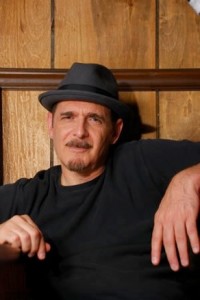 Yeah there’s that, and just taking a Beatles song and covering it to begin with is going over into sacred ground, but then taking “Helter Skelter” out of all of them.
Yeah there’s that, and just taking a Beatles song and covering it to begin with is going over into sacred ground, but then taking “Helter Skelter” out of all of them.
I knew that if I didn’t do it differently, then I would have never done it. I think if you’re going to do a cover then you’ve got to do a different version of it. This is so different, but not obnoxiously different hopefully.
When you’re putting together an album like Tokyo’s Fifth, do you have a plan for how your songs are going to sound, or do you piece together the songs you like the best?
I’m not a volume writer. Some people you find, before breakfast they’ve written a song everyday. I’m more of a fine tuner. If I start to write a song, I’ll become obsessed with it, to work the song out. Let’s make this song doable, viable and recordable. If there’s ten songs on Tokyo’s Fifth, maybe I wrote twelve. Two didn’t make the cut, and those two I’m still working on. I don’t sit there and say, ok the sound of this album is going to be a certain way. I tend to be eclectic. There’s no plan, it’s total chaos.
Not quite total chaos.
Tokyo Rosenthal: As his website states “Always writing and always gigging. The journey continues.”
Interview by Kath Galasso. Kat’s Theoryof Music
First published on Ourvinyl.com

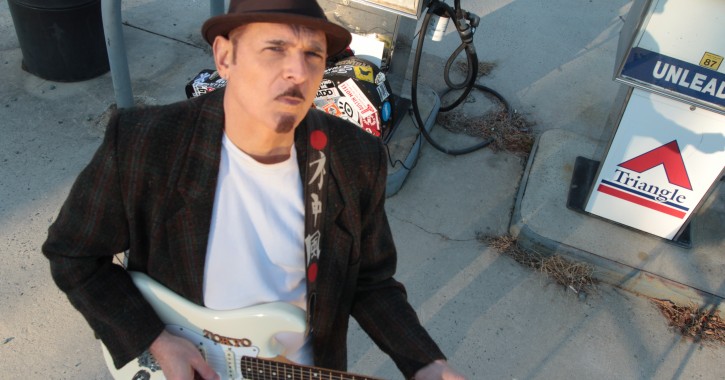











0 comments